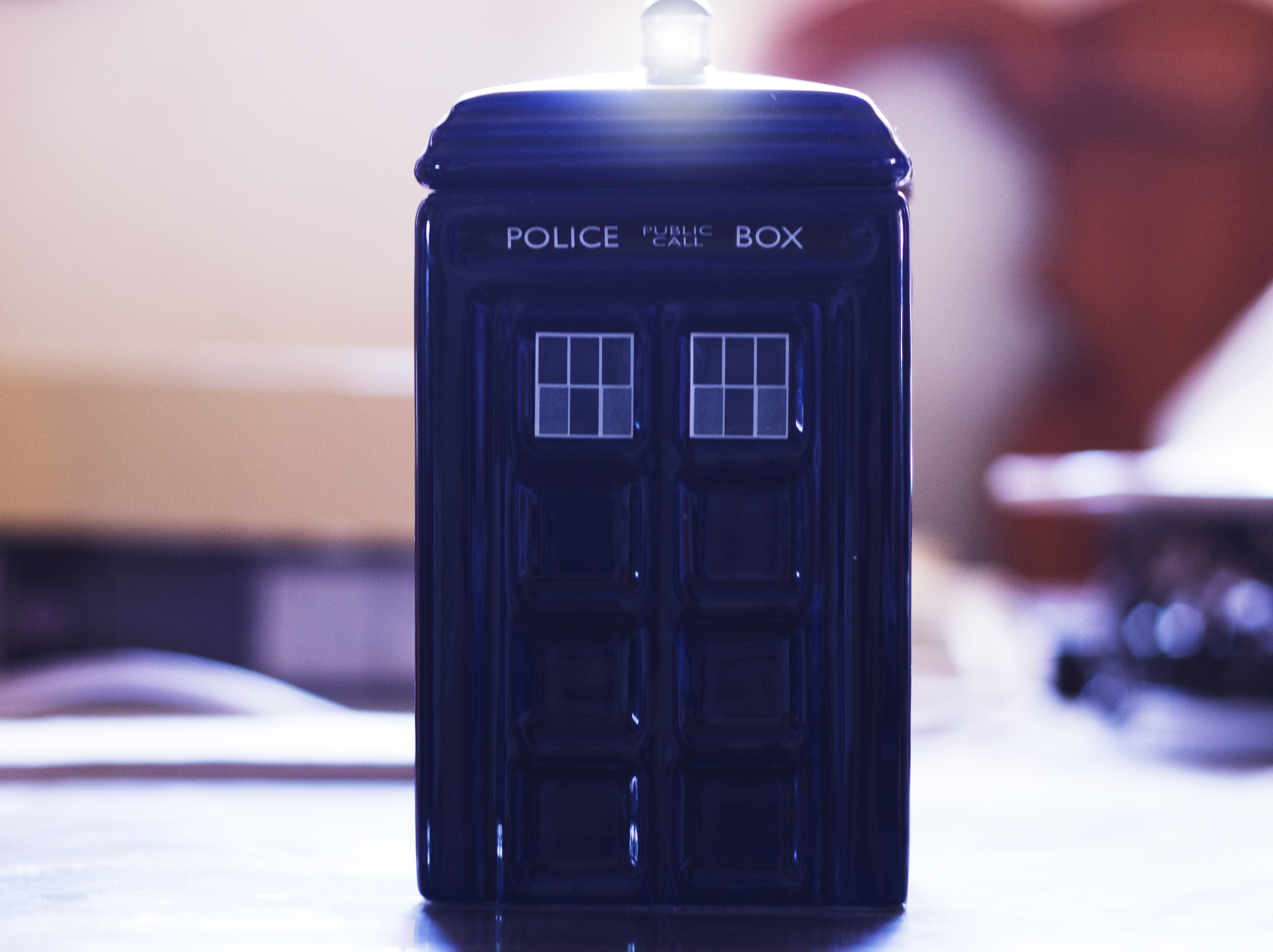Two Poems by John F. Buckley and Martin Ott
The Time Traveler Talks to the Time Traveler
The thing about time travel is that you’re always out of time.
The target is the emblem on your chest, exposed heart.
The arrow is imaginary, hewn less of wood than dry craft
and an almost earnest hope of careening back to home.
I should have known I could never save the lonely one
in my bed, in my mirror, in my dreams of looking back.
When tracked millennia press like millstones on my back,
I spin the chrono-dial like a roulette wheel, gambling time
since I lost my partner in the temporal riptides, the one
fulcrum that kept me from swinging into the black heart
of my own past, the dusky parlors of an ancestral home
on dying Mu Cephei-III. Memory is the bleakest witchcraft.
Let’s begin the journey in an unrecognizable spacecraft,
the shape of a police call box or litter box, phasing back
to mad flurries of snowflakes and static whenever “Home
on the Range” plays on the speakers. They say anytime
you live longer than your world you have reached the heart
of lightness, but you remember you can’t be the only one.
Sometimes solitude makes it seem as though you’ve won
the privacy lottery, no nosy roommates sampling your Kraft,
no despondent lovers belting out a cappella versions of Heart
ballads, no siblings warning “Don’t break your momma’s back”
on sidewalk cracks or perhaps “a Stygian nine shaves time”
when the Charon-series flux capacitor needs another ohm
It is said that a time traveler can never truly build a home
without erasing the thing that made him wander, the one
spark of unease, a clamor or silence, the smell of thyme
gone from a kitchen, the cold drive to wield his own craft
of forgetting like a bludgeon, as if that act could drive back
the ghosts, first travelers into an angry future, inchoate art.
I shuffle centuries like playing cards, lose track of each heart
amidst black and blue suits that trump any return to home.
I revolve around myself in space molasses, no turning back,
no way to kill the version that could have been a savior once
or my own grandfather twice, no way to scuttle this craft
that second-guesses history, a willful clog in the drain of time.
It is impossible to unmend the hurt in my chest and destroy the one
hot core, the home of constant ticking, to swap credence for craft.
The thing about always looking back is that you’re always out of time.
The Fantastic Four on Chore Day
The refrigerator magnet that holds the list
will not lose its charge while the universe
holds its shape, thanks to Reed’s insomnia
and Sue Storm’s endless honey-do requests.
It’s a pain in elastic neck vertebrae to stretch
under each seat in the home theater, checking
for gum wads to chisel off with a screwdriver
and a can of fantastic freon. Ben Grimm hates
folding H’hemmm the Living Laundry, feeling
the mind-tickle of telepathic bedsheets try to
discern his perfect sleeping position as he
matches edges to edges, corners to corners.
Sue take refuge in the refuse, compacting
trash into a glob that hangs like a thought
bubble, pushing down her rage of living
with men into a substance near diamond
but twice as dear, nothing to be traded in
household conversations. And the strain to
restrain, keep a low flame, makes Johnny
tremble as he sterilizes kitchen surfaces:
he blames his brainy bro-in- law for rogue
cleanbots stealing the hoverpods, dreams
of self-cleaning servants in the rearview,
the assumption he likes grilling a travesty
akin to thinking The Thing enjoys masonry.
Still, oversights and rancor aside, family
is family, home home, and housepride in
the Baxter Building calls for elbow grease
in the trophy room as countless galaxy
shattering devices get dusted under glass.
The cycle of chores is disrupted one day
when black matter is discovered beneath
the bottom lip of the mega-osculator, muck
more viscous than the spat tobacco-juice
of Annihilus, more resistant to scrubbing
and bleaching than the Venom Symbiote.
The team rallies around the impenetrable
stain and faces one final battle against
cosmic odds to return to a natural state
of being, before life itself became a quest.
John F. Buckley and Martin Ott began their ongoing games of poetic volleyball in the spring of 2009. Since then, their collaborations have been accepted into more than seventy journals and anthologies, including Barrow Street, Drawn to Marvel, Map Literary, Rabbit Ears: TV Poems, Redivider, and ZYZZYVA, and gathered into two full-length collections on Brooklyn Arts Press, Poets’ Guide to America (2012) and Yankee Broadcast Network (2014). They are now writing poems for a third manuscript, American Wonder, about superheroes and supervillains.
